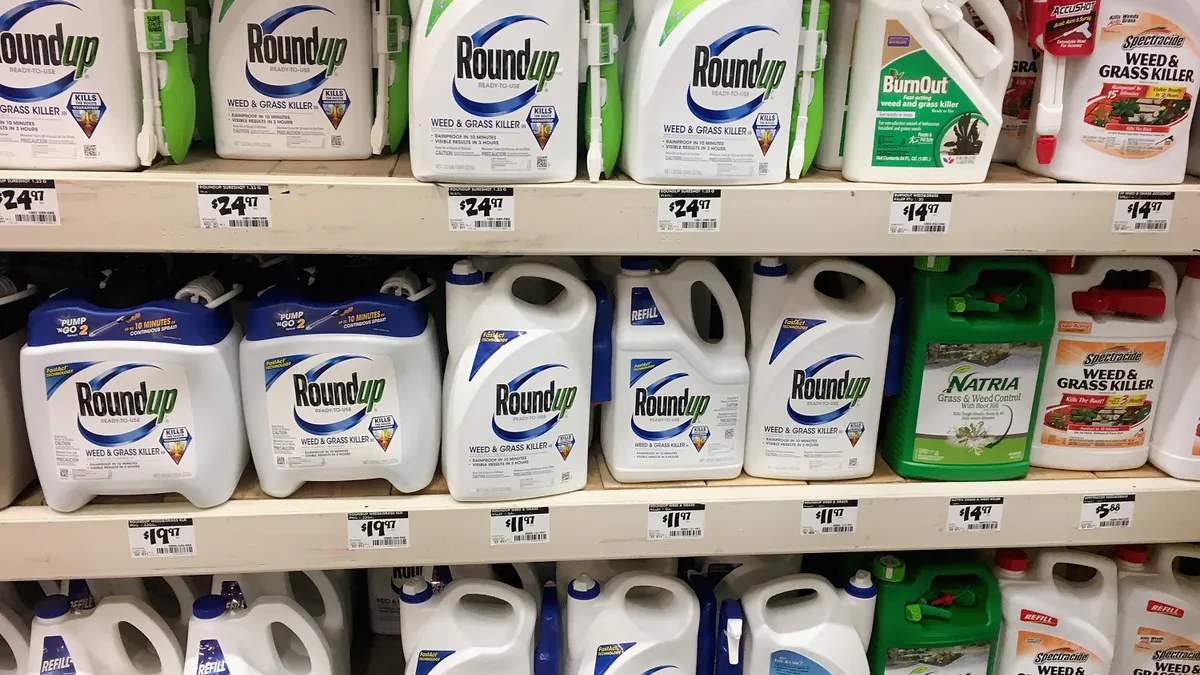Dive Brief:
-
Bayer lowered its 2023 outlook on Monday due to a “significant further decline” in sales of glyphosate-based products, including the controversial weedkiller Roundup.
-
The company said it expects full-year sales to range between 48 billion and 49.5 billion euros, or around $53 billion and $54.5 billion, respectively. It told investors to expect a loss of 2 billion euros for the second quarter of 2023.
-
Bayer is facing slowing demand for products containing glyphosate, the active ingredient in its herbicides, which have been linked to thousands of lawsuits over the years. To mitigate litigation risk, Bayer began replacing products with herbicide alternatives in residential markets this year.
Dive Insight:
Bayer CEO Werner Baumann warned investors of potential sales declines in the crop science division during the second quarter due to faster-than-expected declines in glyphosate market prices.
Bayer previously estimated that group sales would decline by 900 million euros. The company later revised it to 1.7 billion euros before raising it again in Monday’s announcement.
The company said it expects to incur a goodwill impairment of 2.5 billion euros based on the anticipated market development. Bayer’s second quarter earnings release is scheduled for Aug. 8.
Farmers have used glyphosate as an effective herbicide for decades, but over the years a growing number of people who’ve worked with the chemical compound have blamed it for causing cancer, specifically non-Hodgkin’s lymphoma.
Bayer, who acquired glyphosate creator Monsanto in 2018, has taken steps to mitigate litigation risk. The company agreed to pay up to $10.9 billion to settle about 125,000 Roundup cases in 2020. It has also moved to replace its glyphosate-based products in the U.S. residential lawn and gardening markets, but made no changes to its professional and agricultural products.
Whether glyphosate causes cancer is still up for debate. According to the Environmental Protection Agency, the chemical compound is “not likely to be carcinogenic to humans,” but plans to look into it further at a later date. A United Nations agency initially listed glyphosate as “probably carcinogenic to humans,” but later walked it back, saying this was based on limited evidence. It also concluded that there was “strong evidence for genotoxicity,” which can cause cancer.
However, a recent review by the European Food Safety Authority “did not identify critical areas of concern” in terms of glyphosate’s effect on human and animal health. The finding could lead to the weed killer’s reapproval in the EU and increase sales for Bayer.











